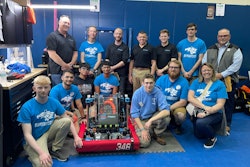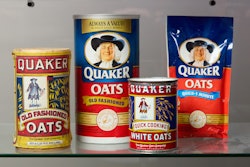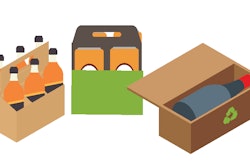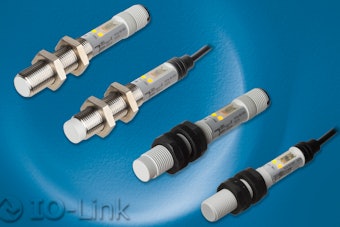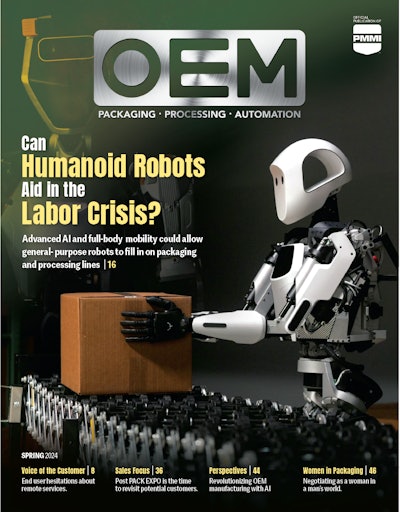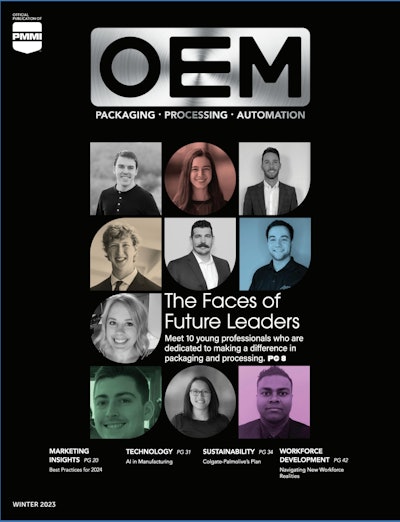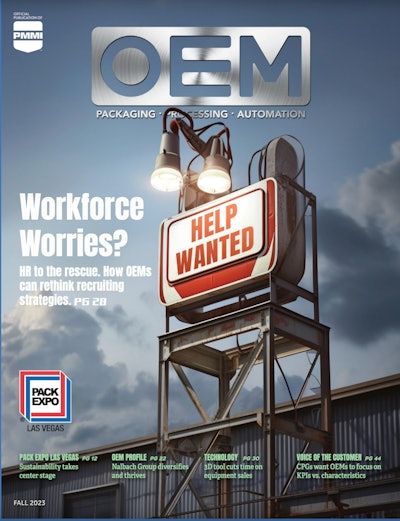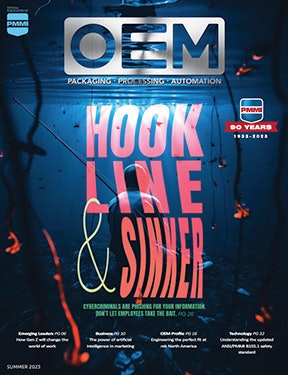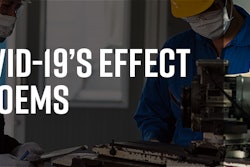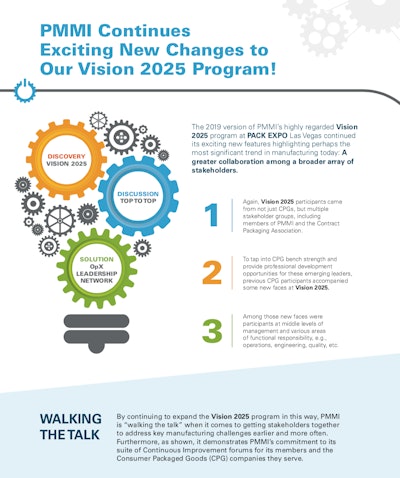
CPGs called for OEMs to build partnerships beyond the transaction, requesting that machinery manufacturers get involved early in the process of equipment selection, training, and installation during PACK EXPO Las Vegas 2019.
Certainly, the processing and packaging market is undergoing massive, disruptive change. Retailers driving differentiation, e-commerce and the proliferation of SKUs are dragging plant efficiency down and stressing the entire supply chain.
A major CPG said: “Our conversations with an OEM always started with speed and reliability. Now we are starting with agility, flexibility, formats, and sizes.” He added, “it’s all about the partnership now. The business unit tells us what they want, and often the OEM comes back and says, ‘here’s something else we can do.’ And many times, we deliver a different solution the business team did not know was possible.”
To that end, the relationship between CPGs and OEMs is becoming more intermingled than ever before, and therefore the expectations are higher.
A co-manufacturer added, “I can’t emphasize enough, when you buy a piece of equipment you are married to that OEM for five, ten, fifteen years.”
With that in mind, a few topics emerged in the Vision 2025 meetings that, if taken into account when working together, can help CPGs and OEMs to build a better partnership that includes overcoming business and technology obstacles together.
Here are a few key takeaways from the conversations:
To access the full Vision 2025 report for free, visit: oemgo.to/2025
Asset reliability key takeaway
While data is key, changing company culture is the biggest challenge.
“We are data rich and information poor,” said one panelist from a controls company. Most participants agreed, saying the resources to have people dedicated to gathering and analyzing the data often fall prey to “we need to get this done, now.” Indeed, keeping the asset reliability process top of mind is a challenge. You tend to become great at putting out fires, agreed the group, but a long-term culture change is harder to establish.
A contract packager/manufacturer stressed that improving efficiency at first might be easy—moving from 30% to 60% is not that complicated. But moving from 85% to 87% efficiency is not easy.
CPGs recognize that OEMs are in business to sell equipment, but they should take notice when a CPG is reordering a particular part more often than expected, and they should reach out to the CPG to see if a change needs to be made to equipment design.
CPGs also requested that OEMs offer more inclusive warranties, short training videos, and that they recognize that operability, maintainability, and reliability should be a focus from day one of any project.
Writing better request for proposal key (RFP) takeaways
Group polling strongly voted the number-one challenge is the need for clarity up front. Solutions include identifying key stakeholders throughout the process, as well as setting milestones and clear expectations.
A COO of a fast-growing brand talked about moving from the old days of “handshake” deals to formal written proposals making sure the company has the right specs. “We now have to make sure OEMs really understand what we want. And when we arrive at a vendor of choice, it gets even more detailed with food safety considerations and line operation from a 24-hour use standpoint.” He added, ”We now have lines that will potentially start up and run for 21 days straight.”
A West Coast OEM offered a machine maker’s perspective. “My team sees 200-to-300 RFPs in a year ranging from a one-page e-mail to a 400-page document.”
Special requests add to cost, of course. RFPs stretch from base machines to functionality that results in discussions that must clarify what will cost extra time and money. Some customers come back and say, “that is actually not really that important to us, let’s cross that off the list.”
All agreed, however, an initial kick-off meeting with all pertinent stakeholders is critical for success. This is the time for that “aha!” moment, and not during the factory acceptance test (FAT).
Meet earlier and more often. The sooner any confusion is cleared up, the better, said one CPG. “You hate to be at a FAT and have to say, ‘I thought we said we needed a washdown motor here.’”
Internal communications are critical as well, one OEM added. “A few years ago, we were struggling with lack of dialogue between sales and engineering, so we set up a ‘cradle to grave’ project management team once we have the order,” to provide continuity throughout the process.
From the CPG end, getting corporate and the plant together is important too. Corporate knows how something should be done, but the plant may have a more realistic view of what can be done.
And corporate has to understand the system that will support the new machine or line. Where is the power or air going to come from? How will it affect footprint? And where and when do safety and sanitation sign off on the impact of the project? Vision 2025 facilitator Steve Perry stressed it is critical to find the disconnects between corporate and the plant.
A pre-factory acceptance test is a good idea, too. One OEM said you could send a few people out a few weeks in advance of the FAT to address any issues. “The actual FAT may only be a few days before shipping deadlines, and we don’t want to get a long laundry list of things we have to adjust.”
Obsolescence was another major issue, particularly with automation components, something even the OEM might not be aware of. It’s frustrating for a CPG to order a replacement component only to find out that it is no longer available. One participant said, “Boy I wish you had told me this would not be available in a year or two. Going on e-bay looking for a replacement part is embarrassing.”
Multifunctional equipment and changeovers key takeaways
Audience polling indicated 37% of respondents said achieving repeatability/changeover set up is the number-one challenge.
Next came the challenge of operating high-tech equipment in a low-tech environment (35%).
Suggestions for improvement in changeover included simplification of the changeover process (29%) and 24% indicated creating cross-functional reliability teams was a good way to tackle the problem.
“We used to have core sizes and a few outliers,” said one CPG, “now all are different, changing how we run the factory and supply chain,” noting that with “customer differentiation” they are tweaking projects after the order starts and changing requirements in scope.
This CPG also stressed that, in the past, package size changes could be expected to last up to five years, now that expectation is much shorter.
A large co-manufacturer agreed. “Our customers’ expectations are much higher, and their demands vary a lot. Many of our customers have as many as 30 SKUs and they want products to be fresh, not sitting in a warehouse, so they are demanding short runs. There is a pressure for frequent changeover, sanitation pressures, and tooling challenges.”
He continued, “the right tooling and the right machine allowing multiple changes is what we’re after. If you are not producing and the machine is idle, you are not making money.”
Pressure comes up through the supply chain. “But it’s what makes this business great,” said a large OEM. “It’s constant change but at a faster and faster rate.”
This OEM also told the audience that vertical start-up is becoming more critical, and they are always looking for “what can we do to reduce changeover time, tool-less, color coding, electronic?’ And the next step is 3D vision, artificial intelligence and machine learning. “Our goal is to build a system an operator can walk up to and know intuitively how to operate it.”
Change parts are changing too. According to one CPG: “We know our new package size will last for a year, but we are buying change parts made to last 20 years. Can we go with a lower cost solution? Print that part? We have to look at change parts differently.”


